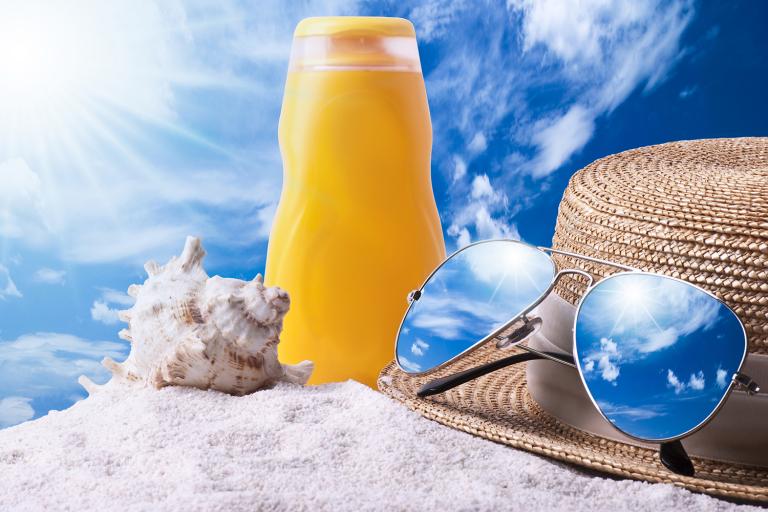For eco-conscious travelers looking to be one with nature, choosing the perfect sunscreen may be about more than preventing sunburn.
Fortunately, more natural alternatives exist. In some cases, certain sunscreen ingredients may even boost skincare without affecting marine life.
For example, oxybenzone is also a chemical known to be both harmful to humans and ecosystems.
Sunscreen and Marine Life
Certain sunscreens contain microscopic metals, toxic chemicals, and other ingredients that may be harmful to surrounding ecosystems, according to a study published in The Journal of Environmental Science.
The study notes that products containing nanomaterials, 100,000 times smaller than a human hair, may affect marine life in unpredictable ways. For example, nano-zinc, nano-copper, and other nano-metals may be most harmful to small animals like crustaceans, worms, fish, and algae, the study suggests.
The eco-conscious shopper may also want to avoid benzophenones and plastic microbeads, which are now banned in the United States.
Ingredients That Can Damage the Environment
- benzophenones
- camphor derivatives
- cinnamates
- zinc (clear or nano)
- cylcopentasiloxane
- cyclomethicone
- methylisothiazolinone
- sodium lauryl sulfate
- octyl methoxycinnamate
- oxtinoxate
- oxybenzone
- parabens
- propyparaben
- benzylparaben
- methylparaben
- butylparaben
- plastic microbeads
Sunscreen and Human Health
Aside from the aquatic environment, certain products can also harm human life.
Ingredients with Health Concerns
Harmful chemical ingredients found in sunscreens include:
- diazolidinyl urea
- DMDM hydantoin
- homosalate
- laureth sulfate
- methylisothiazolinone
- octyl methoxycinnamate
- oxybenzone
- oxtinoxate
- parabens
- propyparaben
- benzylparaben
- methylparaben
- butylparaben
- quaternium-15
- retinyl palitate
- sodium lauryl
- nano particles
Endocrine Blockers
Many FDA-approved chemical ingredients in sunscreen are considered “endocrine blockers,” which can affect the body’s production of hormones, according board certified doctor and Dr. Oz Show advisor Arthur W. Perry.
Perry wrote in a 2013 blog post that these chemicals seep into the skin rather than sitting on top of it to block UVA/UVB rays.
As the chemicals move into the bloodstream, they are unable to be detoxified and digested by the liver and can be traceable in blood or urine for the next two days.
Natural Ingredients
Recently, in a yearlong study by experts at Eckerd College, products were tested to determine if they passed as “eco-friendly.”
The Florida-based study looked at how ingredients could potentially affect sensitive coral larvae and freshwater fish.
Many natural products include natural, antioxidant-rich ingredients like wakame seaweed, green tea extracts, and olive leaf extracts.
-
Green Tea
Green tea is known to reduce premature aging caused by the sun.
-
Olive Leaf
Olive leaf is known for its immune-boosting strengths.

